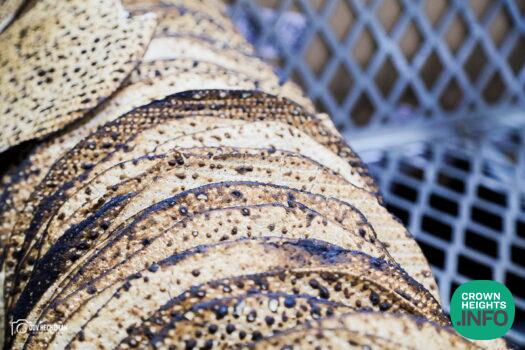
Weekly Dvar Torah: Rebirth and Renewal – It’s Never Too Late
Pesach Sheni is a fascinating and deeply meaningful observance in the Jewish calendar, embodying profound themes of redemption, renewal, and the enduring possibility of spiritual transformation. This special day falls exactly one month after the initial Passover celebration and carries a message that resonates through the ages: it’s never too late to correct our paths and draw closer to the Divine.
At its core, Pesach Sheni underscores the principle of second chances. It challenges the notion that missed opportunities are irretrievable and emphasizes the inherent value of repentance and rectification. The narrative behind Pesach Sheni, rooted in the biblical account in the Book of Numbers (Bamidbar), serves as a poignant illustration of this principle.
During the journey of the Israelites from Egypt to the Promised Land, some individuals found themselves ritually impure, because they were attending to the transportation of the bones of Yosef and his brothers, and thus unable to partake in the offering of the Passover sacrifice. Feeling excluded from this pivotal communal ritual, they approached Moshe with their plight, questioning why they should be deprived of this sacred opportunity through no fault of their own.
Moshe turned to G-d for guidance. In response, G-d revealed a profound truth: even those who had missed the appointed time for the Passover observance due to impurity or distance could still partake in a second Passover. Moreover, this extension of opportunity applied not only to circumstances beyond one’s control but also to those who had intentionally distanced themselves from the prescribed rituals.
This Divine decree embodies a profound principle of Divine compassion and understanding. Recognizing that individuals may find themselves spiritually impure or estranged from their faith for a variety of reasons – some beyond their control, others self-inflicted. Despite this, it affirms the enduring possibility of spiritual renewal and return, offering a pathway back to connection and communion with the Divine.
What sets Pesach Sheni apart is its capacity to transcend the limitations of time and circumstance. Unlike other missed opportunities, where the passage of time renders them irrevocable, Pesach Sheni stands as a testament to the timeless nature of Divine grace. It serves as a powerful reminder that the journey of spiritual growth is not bound by the constraints of temporal deadlines or past mistakes.
Moreover, Pesach Sheni invites us to reflect on the nature of repentance (teshuva) itself. While the concept of teshuva entails sincere remorse for past transgressions and a commitment to positive change, Pesach Sheni introduces a deeper dimension of renewal. It offers a clean slate, a fresh start unencumbered by the weight of past misdeeds. In this sense, it transcends mere repentance, signaling a rebirth and reawakening of the soul.
Teshuva traditionally entails sincere remorse for past misdeeds and a commitment to positive change. Yet, Jewish law stipulates that if someone commits a sin with the knowledge that they can simply repent later, their repentance may not be accepted. This raises a perplexing question: if Teshuva hinges on genuine regret and the sincere desire to return to a righteous path, how can Pesach Sheni offer a second chance even to those who intentionally neglected their obligation to bring the Passover sacrifice on time?
The Rambam sheds light on this enigma. According to his rulings, Pesach Sheni extends its grace even to individuals who were not obligated to participate in the initial Passover observance due to circumstances such as being a child who became Bar Mitzvah after Pesach or a convert who completed their conversion after Pesach. This presents a paradox: if Pesach Sheni is intended to compensate for a missed opportunity, how can it apply to those who were not initially obligated to participate?
Herein lies the profound depth of Pesach Sheni. It transcends the mere act of making amends for past errors; it represents a profound spiritual rebirth and renewal.
This concept is further underscored by the symbolism of Passover itself. Passover marks the birth of the Jewish nation. In much the same way, like by a newborn, Pesach Sheni represents a spiritual rebirth, a chance to emerge anew, unburdened by the weight of past mistakes.
Unlike traditional repentance, which may necessitate confronting a checkered past, Pesach Sheni offers a fresh start, unencumbered by the baggage of prior transgressions. It’s as if each individual is being born anew, with a clean slate and boundless potential for growth and transformation.
In essence, Pesach Sheni transcends the limitations of conventional repentance. It reaffirms the timeless truth that it is never too late to return to the path of righteousness, for every soul possesses the capacity for renewal and spiritual rebirth. With Pesach Sheni, the eternal promise of divine forgiveness beckons, inviting all who seek it to embark on a journey of reconciliation and renewal.
It is never too late, because you are starting with a clean slate.
Have a Transformative Rebirth of a Shabbos
Gut Shabbos
Rabbi Yosef Katzman












